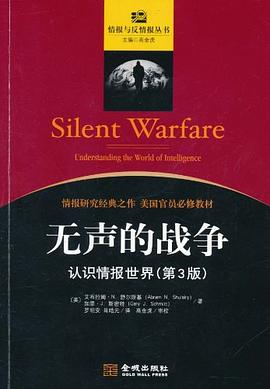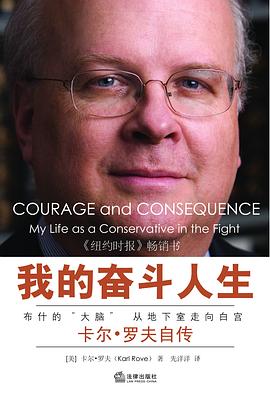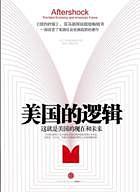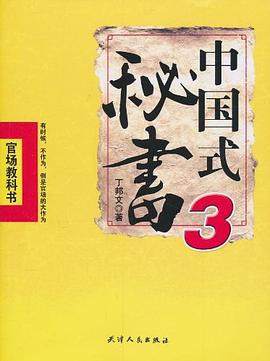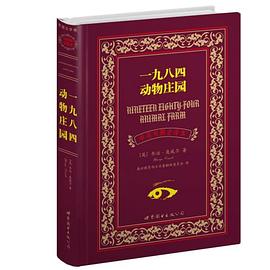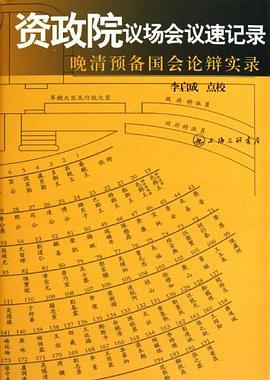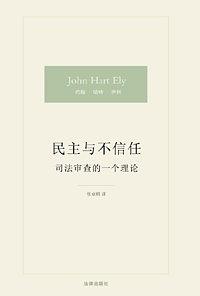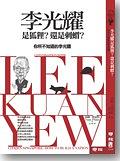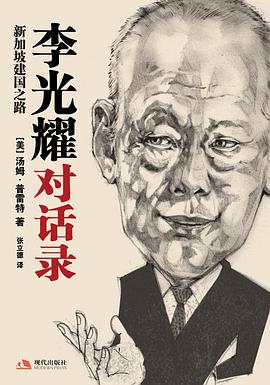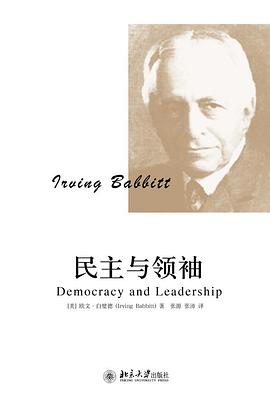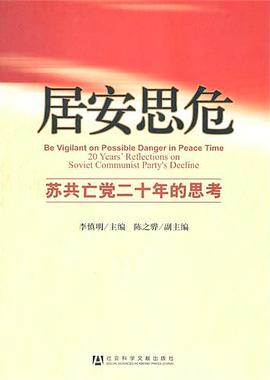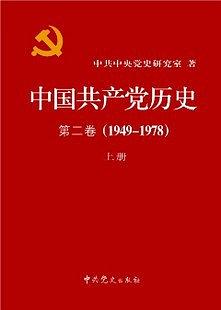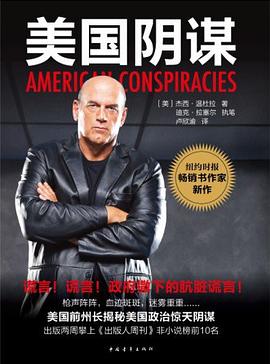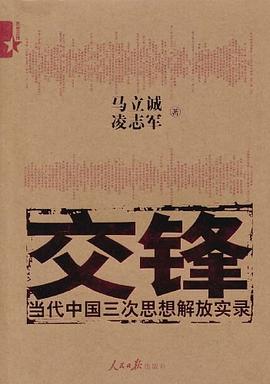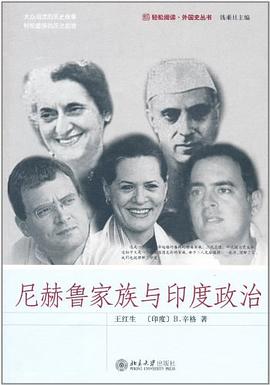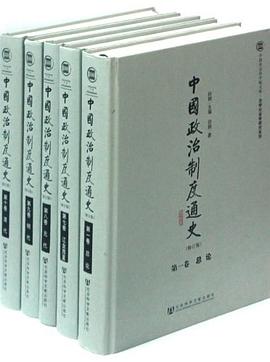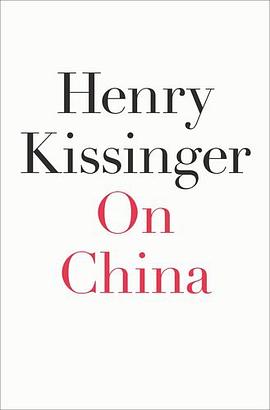

具体描述
In this sweeping and insightful history, Henry Kissinger turns for the first time at book-length to a country he has known intimately for decades, and whose modern relations with the West he helped shape. Drawing on historical records as well as his conversations with Chinese leaders over the past forty years, Kissinger examines how China has approached diplomacy, strategy, and negotiation throughout its history, and reflects on the consequences for the global balance of power in the 21st century.
Since no other country can claim a more powerful link to its ancient past and classical principles, any attempt to understand China's future world role must begin with an appreciation of its long history. For centuries, China rarely encountered other societies of comparable size and sophistication; it was the "Middle Kingdom," treating the peoples on its periphery as vassal states. At the same time, Chinese statesmen-facing threats of invasion from without, and the contests of competing factions within-developed a canon of strategic thought that prized the virtues of subtlety, patience, and indirection over feats of martial prowess.
In On China, Kissinger examines key episodes in Chinese foreign policy from the classical era to the present day, with a particular emphasis on the decades since the rise of Mao Zedong. He illuminates the inner workings of Chinese diplomacy during such pivotal events as the initial encounters between China and modern European powers, the formation and breakdown of the Sino-Soviet alliance, the Korean War, Richard Nixon's historic trip to Beijing, and three crises in the Taiwan Straits. Drawing on his extensive personal experience with four generation of Chinese leaders, he brings to life towering figures such as Mao, Zhou Enlai, and Deng Xiaoping, revealing how their different visions have shaped China's modern destiny.
With his singular vantage on U.S.-China relations, Kissinger traces the evolution of this fraught but crucial relationship over the past 60 years, following its dramatic course from estrangement to strategic partnership to economic interdependence, and toward an uncertain future. With a final chapter on the emerging superpower's 21st-century world role, On China provides an intimate historical perspective on Chinese foreign affairs from one of the premier statesmen of the 20th century.
作者简介
Henry Kissinger served as national security advisor and then secretary of state under Richard Nixon and Gerald Ford, and has advised many other American presidents on foreign policy. He received the 1973 Nobel Peace Prize, the Presidential Medal of Freedom, and the Medal of Liberty, among other awards. He is the author of numerous books and articles on foreign policy and diplomacy and is currently the chairman of Kissinger Associates, Inc., an international consulting firm.
目录信息
Note on Chinese Spellings xix
Prologue 1
Chapter 1 The Singularity of China 5
The Era of Chinese Preeminence 8
Confucianism 13
Concepts of International Relations: Impartiality or Equality? 16
Chinese Realpolitik and Sun Tzu's Art of War 22
Chapter 2 The Kowtow Question and the Opium War 33
The Macartney Mission 35
The Clash of Two World Orders: The Opium War 45
Qiying's Diplomacy: Soothing the Barbarians 51
Chapter 3 From Preeminence to Decline 57
Wei Yuan's Blueprint: "Using Barbarians Against Barbarians," Learning Their Techniques 60
The Erosion of Authority: Domestic Upheavals and the Challenge of Foreign Encroachments 64
Managing Decline 69
The Challenge of Japan 77
Korea 80
The Boxer Uprising and the New Era of Warring States 86
Chapter 4 Mao's Continuous Revolution 91
Mao and the Great Harmony 92
Mao and International Relations: The Empty City Stratagem, Chinese Deterrence, and the Quest for Psychological Advantage 97
The Continuous Revolution and the Chinese People 106
Chapter 5 Triangular Diplomacy and the Korean War 113
Acheson and the Lure of Chinese Titoism 118
Kim Il-sung and the Outbreak of War 122
American Intervention: Resisting Aggression 129
Chinese Reactions: Another Approach to Deterrence 133
Sino-American Confrontation 143
Chapter 6 China Confronts Both Superpowers 148
The First Taiwan Strait Crisis 151
Diplomatic Interlude with the United States 158
Mao, Khrushchev, and the Sino-Soviet Split 161
The Second Taiwan Strait Crisis 172
Chapter 7 A Decade of Crises 181
The Great Leap Forward 181
The Himalayan Border Dispute and the 1962 Sino-Indian War 184
The Cultural Revolution 192
Was There a Lost Opportunity? 197
Chapter 8 The Road to Reconciliation 202
The Chinese Strategy 203
The American Strategy 213
First Steps-Clashes at the Ussuri River 215
Chapter 9 Resumption of Relations: First Encounters with Mao and Zhou 236
Zhou Enlai 241
Nixon in China: The Meeting with Mao 255
The Nixon-Zhou Dialogue 262
The Shanghai Communiqué 267
The Aftermath 273
Chapter 10 The Quasi-Alliance: Conversations with Mao 275
The "Horizontal Line": Chinese Approaches to Containment 277
The Impact of Watergate 292
Chapter 11 The End of the Mao Era 294
The Succession Crisis 294
The Fall of Zhou Enlai 297
Final Meetings with Mao: The Swallows and the Coming of the Storm 303
Chapter 12 The Indestructible Deng 321
Deng's First Return to Power 322
The Death of Leaders-Hua Guofeng 327
Deng's Ascendance-"Reform and Opening Up" 329
Chapter 13 "Touching the Tiger's Buttocks": The Third Vietnam War 340
Vietnam: Confounder of Great Powers 341
Deng's Foreign Policy-Dialogue with America and Normalization 348
Deng's Journeys 356
Deng's Visit to America and the New Definition of Alliance 360
The Third Vietnam War 367
Chapter 14 Reagan and the Advent of Normalcy 377
Taiwan Arms Sales and the Third Communiqué 381
China and the Superpowers-The New Equilibrium 387
Deng's Reform Program 396
Chapter 15 Tiananmen 405
American Dilemmas 411
The Fang Lizhi Controversy 428
The 12- and 24-Character Statements 437
Chapter 16 What Kind of Reform? Deng's Southern Tour 440
Chapter 17 A Roller Coaster Ride Toward Another Reconciliation: The Jiang Zemin Era 447
China and the Disintegrating Soviet Union 456
The Clinton Administration and China Policy 461
The Third Taiwan Strait Crisis 471
China's Resurgence and Jiang's Reflections 478
Chapter 18 The New Millennium 487
Differences in Perspective 493
How to Define Strategic Opportunity 497
The National Destiny Debate-The Triumphalist View 503
Dai Bingguo-A Reaffirmation of Peaceful Rise 508
Epilogue: Does History Repeat Itself? The Crowe Memorandum 514
Toward a Pacific Community? 527
Afterword to the paperback edition 531
Notes 549
Index 585
· · · · · · (收起)
读后感
中国的事,有时候外国人看得更明白。 倒不是因为别的什么原因,一是旁观者清,二是身在墙外。 透过老外的眼睛看看自己,不仅能更清楚的了解自己,而且也能知道外面人的视角和思维。 在当下这个时刻,更有价值。 新华社“勿谓言之不预”之后,王老师马上又要访美了。按照新乡时...
评分1p 中国的每一次分裂都被视为不正常的暂时现象。而朝廷的每次垮台,都会被重建。华夏文化的精髓历经战祸考验,终得以延续。 6p 中华文明绵延数千年,却从未主动与其他国家或文明打过交道。这样的光荣独立在人类历史上独一无二,酝酿了一种独特的中国自我意识。对外国的排斥和对...
评分读书要有自己的思考 翻开这本厚厚的书,这是一个多次与中国接触的美国外交官写的对于中国近百年来的历史以及他对于中国几个领导人的认识。 分析清朝末期到建国以来中国的特性,作者主要有一个观点:中华民族从来都有强烈的民族自豪感,我们就是地球的中心,这源于我们深厚的文...
评分一直以来,我对于外国人对中国的观察记录都保持着浓厚兴趣,每遇到一本都会毫不犹豫地读完。每种相异文化背景都会带来一种截然不同的视角。透过他们的眼睛去看那些我们早已熟悉的人和事,物与景,会有让人觉得陌生的熟悉感。这种违和感对于我来说常常是种乐趣。 这本书覆盖了1...
评分看到91岁高龄的基辛格这个月又出了一本新书,想起自己两年多前买过他写的一本On China,就拿出来再翻一翻。他的每本书都喜欢写得都巨长无比,那时没空没心情仔细阅读,只是随便翻了一些重点章节,也印象不深。这次拿出来从头到尾再读一次,有点被震惊到。这种思维方式的美国人...
用户评价
翻开《On China》,我最先被吸引住的,并非那些宏大的叙事或精巧的论证,而是作者在字里行间流露出的那种深沉的思考与敏锐的洞察。我之所以称之为“深沉”,是因为我感受到作者并非仅仅在描绘中国,而是在试图挖掘中国之所以成为中国的那股内在的精神力量。这种力量,它体现在历史的洪流中,也体现在当下中国人民的生活肌理里。比如,当我读到作者对中国传统哲学思想的解读时,我仿佛窥见了那个古老国度在漫长岁月中如何塑造其民族性格,如何形成一套与西方截然不同的价值体系。他没有简单地将儒家、道家等流派视为历史遗迹,而是深入剖析了它们如何渗透到社会结构、人际关系乃至个体思维模式中。这种解读,让我不再将中国视为一个模糊的地理概念,而是将其理解为一个拥有深厚文化底蕴和独特精神内核的文明体。 再者,作者在分析中国对外关系时,那种宏观的视角和微观的细节把握,令我印象深刻。他不仅仅是在罗列条约、事件,更是在探究这些表象背后,中国在不同历史时期所扮演的角色、所怀揣的目标,以及在与外部世界互动中所经历的曲折与蜕变。我特别留意到他对中国近代以来一系列屈辱历史的描述,作者的处理方式并非仅仅是控诉,而更多的是在反思,是在探究这些经历如何塑造了今日中国的民族自信与自立的决心。这种反思,让我对中国崛起背后的复杂性有了更深的理解,也更能体会到,国家的发展不仅仅是经济数字的增长,更是民族精神的复苏与重建。
评分《On China》这本书,为我提供了一个全新的视角来理解中国人民的精神世界。作者在书中对于中国传统文化中“和谐”理念的深入阐释,让我明白为何中国人民如此重视人与人之间的关系,以及为何他们会在集体利益面前做出牺牲。他会细致地描绘中国传统家庭观念,以及这种观念如何影响着中国人的行为方式。 他还会探讨中国人民在面对冲突和矛盾时所采取的策略,例如“以柔克刚”,以及“和而不同”。作者在分析这些文化特质时,并没有简单地将其视为某种刻板印象,而是试图去理解它们背后的深层原因,以及它们对中国人民的日常生活所产生的影响。这种对中国人民精神世界的深度挖掘,让我对这个国家有了更深层次的尊重。
评分《On China》这本书,让我看到了中国人民是如何在世界舞台上展现出自信与担当的。作者对于中国在国际事务中所扮演的角色,以及中国为维护世界和平与发展所做出的贡献,都进行了详实的阐述。他会细致地描绘中国参与联合国维和行动,以及中国在应对全球性挑战,例如气候变化和疫情等方面所发挥的重要作用。 他还会探讨中国提出的“一带一路”倡议,以及该倡议如何为全球经济发展带来新的机遇。作者在分析这些国际性议题时,并没有简单地将其视为某种政治宣传,而是试图去理解它们背后的深层原因,以及它们对全球未来发展所产生的影响。这种对中国在国际事务中角色的全面解读,让我对这个国家有了更深层次的认同。
评分《On China》这本书,仿佛一把钥匙,为我打开了一扇通往中国内心深处的大门。作者在书中对于中国人民精神世界的探索,让我深受感动。他不仅仅是讲述中国发生了什么,更是试图理解中国人民为何会那样思考、那样行动。他对中国传统文化中“家国情怀”的解读,让我明白了为何中国人民对国家民族有着如此深厚的情感联系。 他还会深入描写中国人民在面对困难和挑战时所展现出的坚韧与乐观,那种“天行健,君子以自强不息”的精神,让我看到了中华民族生生不息的力量源泉。无论是描写普通民众的日常生活,还是讲述重大历史事件中的个体命运,作者都能够抓住人物的内心世界,将他们的情感与思想淋漓尽致地展现出来,让我仿佛能够与他们一同呼吸,一同感受。
评分《On China》这本书,让我对中国这个古老而又充满活力的国度,有了前所未有的深刻认识。作者的笔触,既有对宏观历史进程的把握,也有对具体社会现象的细致描摹。我尤其喜欢他对于中国现代经济发展轨迹的分析,那种将经济数据与社会变革相结合的视角,让我不再觉得那些冰冷的数字仅仅是统计报表,而是实实在在的人民生活改善和国家进步的体现。他会深入浅出地解释一些复杂的经济概念,让非经济学专业背景的我,也能理解中国经济是如何一步步走到今天的。 更让我着迷的是,作者并没有回避中国在发展过程中所面临的挑战与问题。他会坦诚地探讨一些社会矛盾,一些发展中的瓶颈,但他同时也展现出一种乐观的态度,一种相信中国人民有能力克服困难、继续前进的信念。这种平衡的视角,让我对中国的未来充满了希望,也让我看到了中国在世界舞台上日益增长的影响力是如何建立在坚实的基础之上的。
评分《On China》这本书,让我领略到了作者在历史叙事上的独特功力。他并非只是按照时间顺序平铺直叙,而是善于在不同的历史节点之间建立起联系,展现出中国历史发展的内在逻辑和连续性。他对于中国古代王朝兴衰的分析,那种对政治权力运作、社会经济变迁的深刻洞察,让我对中国古代历史有了更宏观、更清晰的认识。 他会细致地描绘每一个王朝的特色,分析其盛世的根源和衰落的原因,并将其与当今中国的发展进行对比,从而揭示出历史的经验教训。作者在解读这些历史事件时,并没有简单地将历史人物脸谱化,而是试图展现他们复杂的人性,以及他们在历史洪流中所扮演的不同角色。这种对历史的深度挖掘,让我对中国历史有了更深刻的理解。
评分我一直对中国的科技发展充满好奇,而《On China》这本书,恰恰满足了我的求知欲。作者以一种引人入胜的方式,讲述了中国在科技领域是如何从追赶者逐渐走向引领者。他不仅仅是列举了各项科技成就,更是深入分析了这些成就背后的驱动力,以及中国在创新方面所采取的独特路径。 他会详细介绍中国在人工智能、航天技术、新能源等领域的突破,并解释这些突破是如何改变世界,以及如何为中国带来新的发展机遇。作者对中国科技人才的培养和激励机制的分析,也让我看到了中国在未来科技竞争中的潜力。这种对中国科技发展的全面解读,让我对这个国家充满了信心。
评分我一直对中国的社会变迁感到着迷,而《On China》这本书,让我得以窥见中国社会是如何在短短几十年间发生翻天覆地的变化的。作者对于中国改革开放以来社会结构的变动,城市化进程的加速,以及人民生活方式的转变,都进行了深入的剖析。他会细致地描绘中国城市的面貌,从鳞次栉比的高楼大厦到 bustling 的街头巷尾,再到乡村的田园风光,都充满了生活的气息。 他还会探讨社会转型过程中所出现的各种现象,例如贫富差距的扩大,传统价值观的冲击,以及新兴社会群体的崛起。作者在分析这些现象时,并没有简单地评判,而是试图去理解它们背后的原因,以及它们对中国社会未来发展的影响。这种对中国社会变迁的全面解读,让我对这个国家有了更立体、更生动的认识。
评分我曾以为自己对中国的了解已经足够,但在阅读《On China》后,我发现自己只是看到了冰山一角。作者以一种极其宏大的视野,将中国置于全球历史和地缘政治的坐标系中进行审视,让我对中国在世界格局中的位置有了全新的认知。他对于中国外交政策的解读,那种战略性的高度和前瞻性的判断,让我惊叹于作者对国际事务的深刻理解。 特别是他对于中国与邻国关系的处理,那种在复杂的地缘政治环境中寻求平衡与合作的智慧,让我对中国的国家战略有了更清晰的认识。他会深入分析各种历史遗留问题,以及中国如何以一种耐心和务实的方式来解决这些问题,从而为地区和平与稳定做出贡献。这种对中国外交智慧的展现,让我对这个国家有了更深层次的尊重。
评分初读《On China》,我惊叹于作者对中国历史细节的考据之精,以及他对不同时代中国社会形态的描绘之生动。仿佛置身于历史的画卷之中,我看到了那个古老国度在不同阶段所经历的辉煌与低谷,感受到了不同时期人们的生活状态与精神风貌。作者在描述某些历史事件时,那种旁征博引、层层递进的写作手法,让我如同跟随一位经验丰富的向导,一步步深入探索中国的过去。他对于中国古代政治制度的分析,其严谨程度让我一度以为他是一位深谙此道的史学家。 尤其让我印象深刻的是,作者在谈及中国古代的文化艺术时,那种字里行间流露出的赞叹与敬意。他没有仅仅将其视为一种物质遗产,而是将其看作是中国人民智慧与情感的结晶,是中华文明独特魅力的重要组成部分。他会细致地描述一幅画的构图,一段诗的意境,甚至一次音乐表演的韵味,让我仿佛能够亲身感受到那些流传千古的艺术作品所蕴含的东方美学。这种对文化艺术的深入挖掘,让我对中国文化有了更立体、更丰富的认识。
评分1.中国人民的老朋友基辛格博士真的很懂中国,2.各种捧中共领导的谋略,鄙视美帝国内意识形态主导的外交啊……不愧是现实主义外交家
评分基辛格真是世界上最囉嗦的人之一
评分读了改革开放以后的那部分,全是流水帐。最后稍微探讨了一下中国的崛起会不会像以前德国的崛起那样引起战争,可惜未曾深入,太浅薄了
评分#地铁阅读系列# 虽然读这本书是为了了解官方历史教科书回避的那些部分,但另一方面这本书也很生动地展现了美国高层决策的思路,有助于对美国政治文化的了解。而基辛格对三代领导人的评述也是引人入胜的,从这本书来看,我觉得蛤蛤的贡献一定程度上被民众低估了,可能大家都在关注他的绯闻吧。
评分读了改革开放以后的那部分,全是流水帐。最后稍微探讨了一下中国的崛起会不会像以前德国的崛起那样引起战争,可惜未曾深入,太浅薄了
相关图书
本站所有内容均为互联网搜索引擎提供的公开搜索信息,本站不存储任何数据与内容,任何内容与数据均与本站无关,如有需要请联系相关搜索引擎包括但不限于百度,google,bing,sogou 等
© 2026 book.wenda123.org All Rights Reserved. 图书目录大全 版权所有

